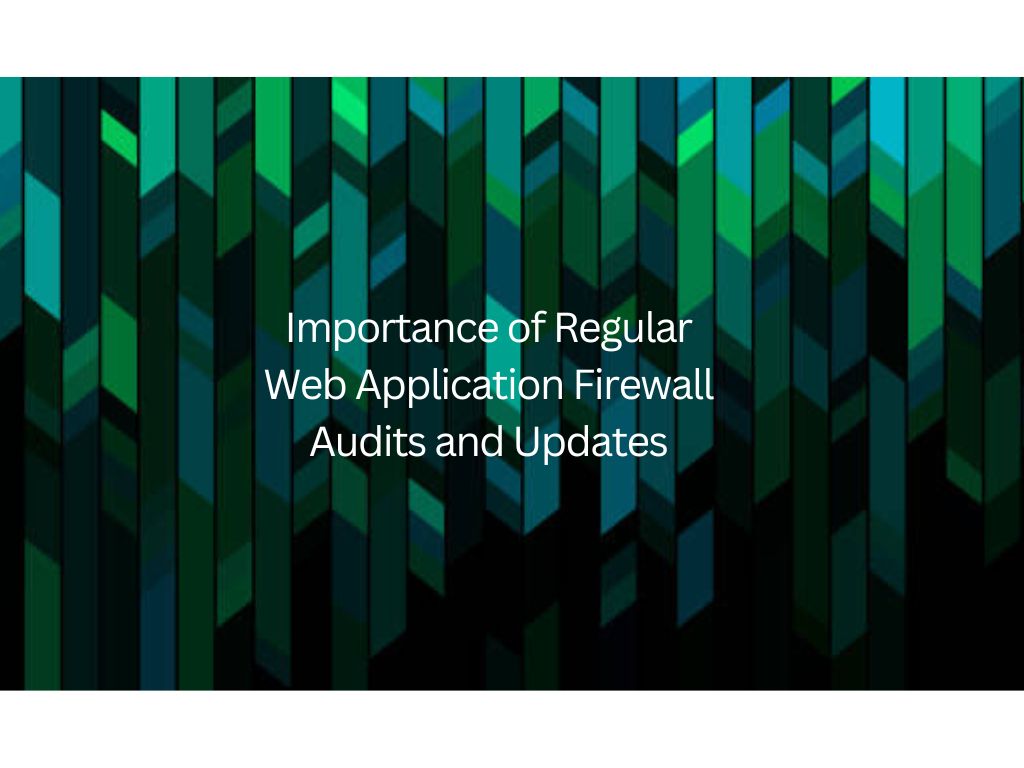Web application firewalls (WAFs) are crucial for protecting websites and applications from cyber threats. However, simply implementing a WAF is not enough. Regular audits and updates are essential to ensure the ongoing effectiveness and security of your web application firewall. In this blog post, we will explore why regular audits and updates are important and how they contribute to a robust cybersecurity strategy.
Protecting Against Evolving Threats:
Cyber threats are constantly evolving, and new vulnerabilities are discovered regularly. Regular audits and updates of your web application firewall allow you to stay ahead of these threats. By keeping your WAF up to date, you ensure that it can effectively detect and mitigate the latest attack techniques and patterns. This proactive approach minimizes the risk of successful breaches and helps safeguard your sensitive data and online assets.
Identifying and Patching Vulnerabilities:
Web application firewalls, like any software, can have vulnerabilities that could be exploited by attackers. Regular audits help identify these vulnerabilities, enabling you to address them promptly. Vulnerability assessments can reveal misconfigurations, outdated rules, or other weaknesses in your WAF setup. By promptly patching these vulnerabilities and updating rule sets, you enhance the overall security posture of your web application firewall.
Ensuring Optimal Performance:
Over time, web applications change, and new features or functionalities are added. These changes may impact the effectiveness of your web application firewall. Regular audits allow you to assess the performance of your WAF and ensure it is still effectively protecting your applications without causing unnecessary hindrance to legitimate traffic. By fine-tuning the rules and configurations, you can strike a balance between security and usability, providing a seamless user experience while maintaining strong security measures.
Compliance and Regulatory Requirements:
Many industries have specific compliance and regulatory requirements for data protection. Regular audits of your web application firewall help you ensure compliance with these standards. By validating that your WAF aligns with industry-specific guidelines and best practices, you demonstrate your commitment to data security and meet the requirements set forth by regulatory bodies. Regular updates also enable you to address any newly introduced compliance measures and maintain a secure environment for sensitive information.
Strengthening Incident Response:
In the event of a security incident or breach, a well-audited and updated web application firewall becomes an invaluable asset. Regular audits help you understand the efficacy of your WAF’s incident response capabilities. By conducting simulated attack scenarios, you can assess how well your WAF detects, alerts, and mitigates potential threats. This insight allows you to refine your incident response procedures, train your team, and enhance your overall security posture.
Conclusion
Regular audits and updates of your web application firewall are crucial for maintaining a strong cybersecurity posture. By protecting against evolving threats, identifying vulnerabilities, ensuring optimal performance, meeting compliance requirements, and strengthening incident response, you can effectively safeguard your web applications and data from malicious actors. Make regular WAF audits and updates an integral part of your cybersecurity strategy to stay one step ahead of potential threats.




